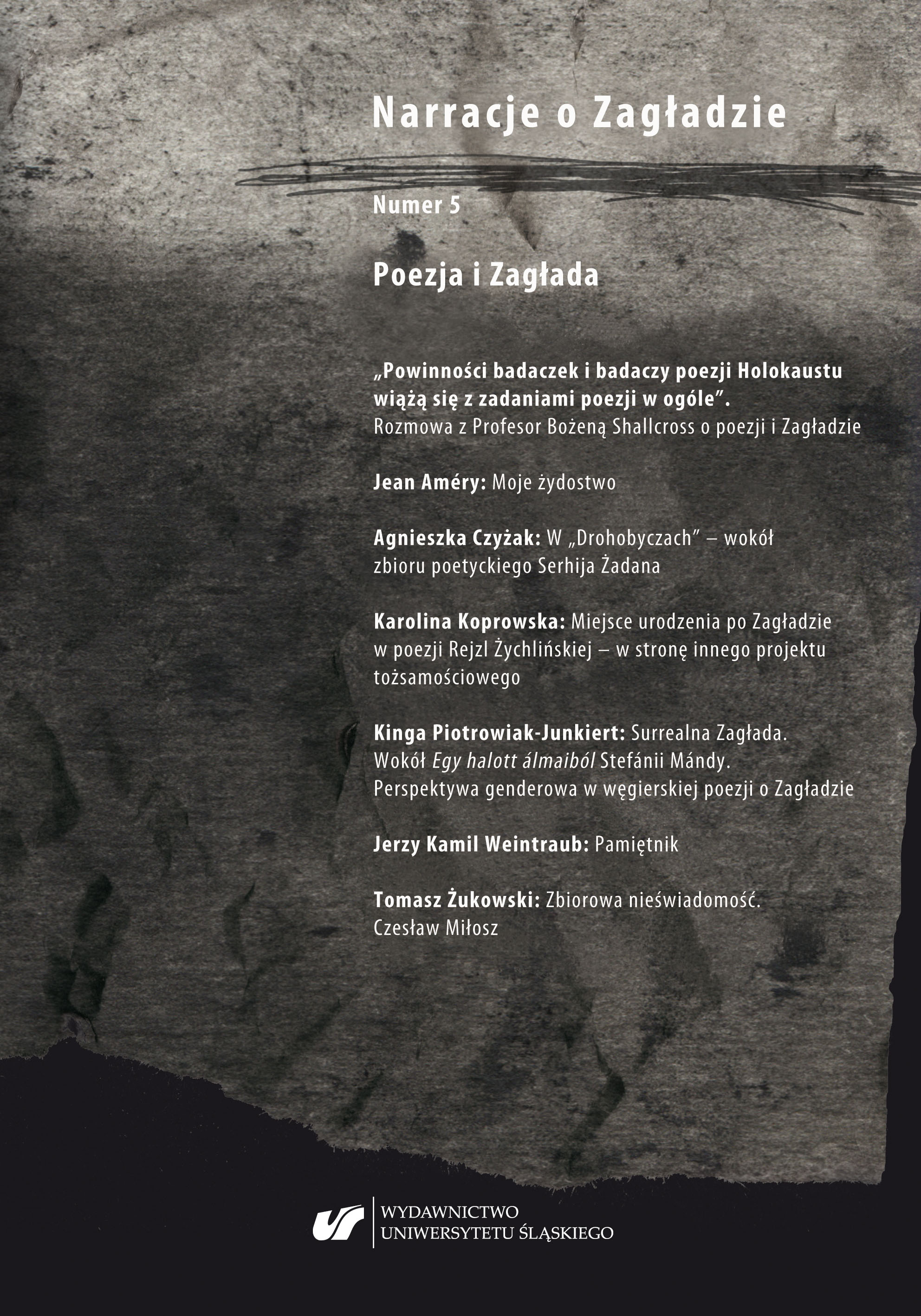Zbiorowa nieświadomość. Czesław Miłosz
Collective Unconscious. Czesław Miłosz
Author(s): Tomasz ŻukowskiSubject(s): Polish Literature, History of Antisemitism
Published by: Wydawnictwo Uniwersytetu Śląskiego
Keywords: Holocaust in Poland; bystanders; collective memory; unconscious; Polish war poetry
Summary/Abstract: “A Poor Christian Looks at the Ghetto” and “Campo di Fiori” are the most acclaimed Polish poetic works on the Holocaust. They have been read as texts on the collective anxieties; the article assumes this interpretative position as well. It begins with a reference to the concreteness of war, that is, an attempt to understand the array of scenes and phenomena that underlie the poetic images. In fact, literary accounts and testimonies of Polish Jews suggest that the general context includes the problems of the Polish violence towards them and collective responsibility incorporated into the plan of extermination inaugurated by the Nazi Germany. In Miłosz’s poem, the unwanted awareness of cooperation and contribution to the Holocaust resurfaces as anxieties (represented by the “mole-guard”), whose invasion is followed by the collapse of the symbolic order and domesticating images. Present yet invisible to the society, the knowledge of Polish violence thus functions as the Lacanian Real. Polish perspective on the death of Jews is put forward in “Campo di Fiori.” Against the traditional readings of it as an account of “apathy,” this text juxtaposes the event of burning the heretic on stake by Christian inquisition with the gaze of a “poor Christian” focused on the burning ghetto. Both figures share the exclusion of dying people who establish the limits of Christian and Polish community; simultaneously, the dying occupy a “dangerous place,” one that is destined to be annihilated in the realm of foundational myths of identity. In the times of the Holocaust, constructing such a limit happens to be a sentence legitimising the actions undertaken by the Nazis.
Journal: Narracje o Zagładzie
- Issue Year: 2019
- Issue No: 5
- Page Range: 44-65
- Page Count: 22
- Language: Polish

